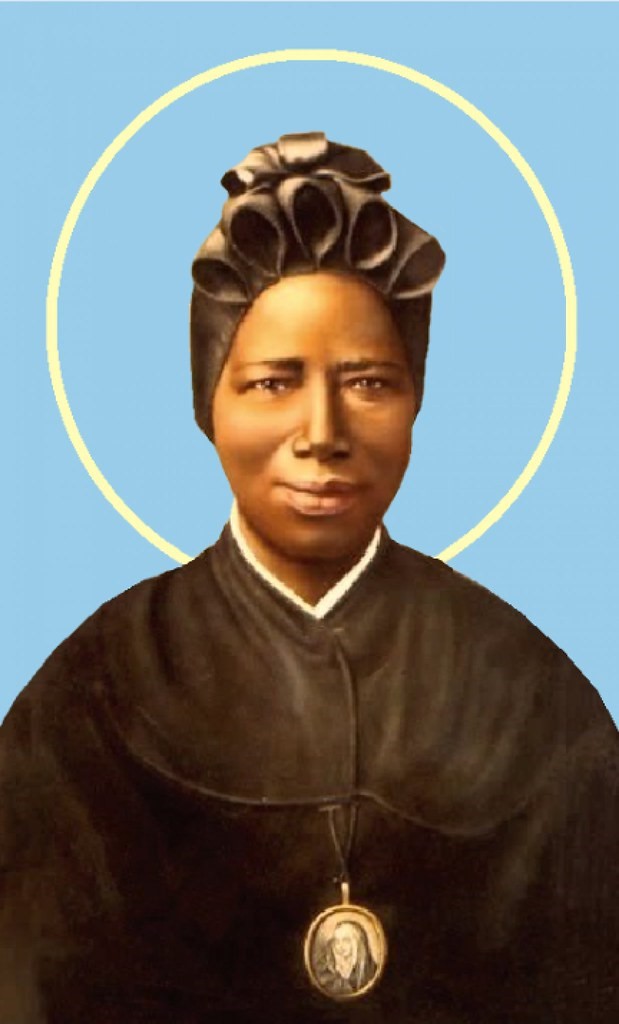
Bakhita – The “Mother Moretta”
Canossian Daughter of Charity Servant of the Poor
My meeting with Bakhita was unexpected; she sought me out in a dream when I still did not know who she was. I became interested in that special Sister and went on pilgrimage to Schio where I found The Canossian Mothers and the Church where the urn with her relics was placed. It was here that I understood how something would definitely change in my life. A new path was opening before me. I did not know why, but I sensed that I should trust that” special woman” and let her guide me. Today I can say that Bakhita has become a constant presence for me, a traveling companion whose closeness as well as always fills me with wonder. She is my reference point, the compass I use in my relationship with God and my neighbor. But the thing that surprises me most is the joy that invades me when I pray to her. In those moments I feel in my heart the need to hold an ever-open dialogue with her to discover God’s love and bring it to earth.
Looking at Bakhita’s life I understand how similar it is to that of many brothers and sisters of our time: men, women and children who, like her, continue to be victims of violence, oppression and slavery.
Even today, there is no shortage of new human traffickers who take away a man’s right to freedom, to the love of a family, to the warmth of his dearest affections. Childhoods denied, youth broken, women robbed of their dignity. Bakhita, with the strength of her faith and her surrender to Providence, is there to tell us that the power of love always redeems us from all evil.
Bakhita teaches us that charity, hope and forgiveness are always possible. She is living proof that even the most traumatic and painful experience can be transformed into good. We need only look to Jesus’ love on the Cross to be able, in turn, to love our brothers and sisters as He did. It is necessary to follow the directions indicated by the Crucified One: straight lines that go from heaven to earth, from east to west, embracing all the people you meet on your path. Only in this way can love be gratuitous and be transformed into mercy for oneself and others, becoming a conjunction of mercy between today and eternity.
Imitating Bakhita, then, means forgetting oneself, recognizing God’s infinite mercy in one’s own life and pouring it out on others so that they may recognize how the “Paron,” as Bakhita called God, is Father rich in mercy capable of lifting up all poverty and restoring to each his dignity as a Son.
Ersilia Nastasi – Canossian laywoman
